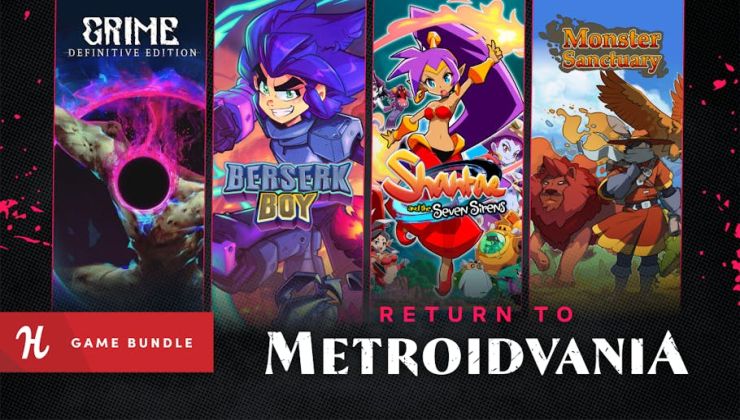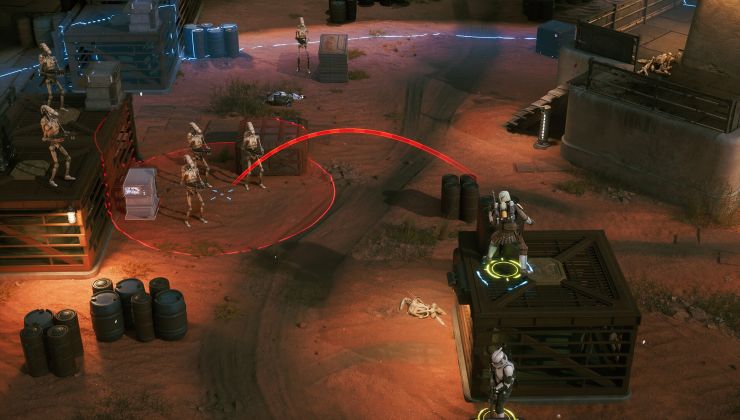The X.Org Developer's Conference - XDC 2023 has been going on for the last few days, and there's some good talks happening including a nice overview across two talks going over the state of HDR and Color Management.
First talk at about is 42:36 is from Melissa Wen of Igalia:
A guided tour of the AMD display driver code to identify hardware color capabilities on different versions, connect relevant parts of the shared code to DRM, and ultimately deliver a broader range of color features to the userspace. This work is another step towards advanced GPU-accelerated color management for Linux compositors, and it has already enabled improvements to HDR display support in SteamOS/Gamescope. So, what's the next treasure hunt?
The second talk at about 1:06:50 is from Joshua Ashton of Valve:
An overview of Gamescope and our journey to support HDR content and color management at scanout and composite for Steam Deck and Desktop.
Covering the issues we faced along the way from all aspects to UX, to getting HDR and 10-bit on XWayland games/clients, to DRM, and to the future of what we need from the new DRM atomic color management pipeline.
Full Day 1 video below, which should start at 42:36 just as Melissa Wen starts speaking:

Direct Link
Joshua Ashton's talk especially was quite fun, love their energy.
Shows that there's really a massive amount of work going into the HDR and colour management, and just how complicated it actually is with a lot more work ahead to get it all hooked up on traditional Linux desktops.
Except work on NVIDIA cards.... -_-
Edit:
Or maybe that's just gamepad ui under a gamescope wayland session.
Either way, the state of Gamepad UI on NVIDIA GPUs is garbage. I absolutely appreciate everything that VALVE has done for Linux, 100%, but I do feel like at some point they need to stop blaming NVIDIA drivers for the crappy performance of Gamepad UI. Honestly, it feels intentional at this point.
Last edited by reedlove on 19 Oct 2023 at 4:24 pm UTC
I do feel like at some point they need to stop blaming NVIDIA drivers for the crappy performance of Gamepad UI. Honestly, it feels intentional at this point.Considering that ChimeraOS has also given up on NVIDIA, I'm not sure Valve is exaggerating.
I do feel like at some point they need to stop blaming NVIDIA drivers for the crappy performance of Gamepad UI. Honestly, it feels intentional at this point.Considering that ChimeraOS has also given up on NVIDIA, I'm not sure Valve is exaggerating.
Considering that ChimeraOS is using VALVE's gamepad ui, which is the culprit P.S., they absolutely could be exaggerating.
Honestly, if the NVIDIA drivers are good enough to play most modern 3D games with good performance etc., rendering a 2D GUI, regardless of whether or not it's using 3D acceleration to do so, should not perform as badly as it does.
Think about it.
Edit:
And it could just be that VALVE is focusing on AMD because that's what's driving the Steam Deck. I understand that, because they need to make sure that their hardware is working as well as possible.
However, is it also fair to say that if they're going to release Steam for general Linux distributions, and make money off of it *regardless of the market size, yadda yadda*, shouldn't a product that isn't explicitly listed as being beta quality work?
When Gamepad UI first came out, I totally had no problem with it not working out of the box. The Linux graphics stack has been in a state of great transition. I get that, but how long has the damned thing been out???
If the VALVE software engineers can continue to crank out all of the lovely things that they do for Linux, thank you VALVE, shouldn't getting a major feature that ships with their software working smoothly be a priority? NVIDIA users aren't just a tiny segment of the Linux community. If anything, I feel like it's exclusionary to a degree.
Am I being unfair??
Last edited by reedlove on 20 Oct 2023 at 4:57 pm UTC
At this point in time they're just punishing their end-users.
When the high 90th percentile of everything else graphics related works just fine on NVIDIA hardware, there's no excuse.
When the high 90th percentile of everything else graphics related works just fine on NVIDIA hardware, there's no excuse.Honestly that's fair. They may not be as good as AMD but supposedly they work just fine. I think that they just don't want to encourage NVIDIA's laziness when it comes to Linux drivers. It's not a good excuse but AMD is their main focus now and I don't believe that they're working on a general SteamOS release right now.
When the high 90th percentile of everything else graphics related works just fine on NVIDIA hardware, there's no excuse.Honestly that's fair. They may not be as good as AMD but supposedly they work just fine. I think that they just don't want to encourage NVIDIA's laziness when it comes to Linux drivers. It's not a good excuse but AMD is their main focus now and I don't believe that they're working on a general SteamOS release right now.
I'm fine with them not focusing on a generic Steam OS for all hardware right now, BUT, **Steam**, >>> THE CLIENT <<<, is still being pushed to the masses as though it were production software.
This isn't something that's being whittled away at by unpaid software developers in the open source community... This is a commercial product/platform that folks spend tons of money on that in many cases only provides you a "license" to play purchased games and software that could be yanked away from you at any time in the event that a publisher gets bought out or folds...
This also isn't an issue with Proton Compatibility etc., which is an insanely complex beast, this is a NATIVE feature for their NATIVE client on Linux.
I think that NVIDIA users have been more than patient. If you're not gonna play nice with everyone at the park then put up some big warning signs all over your platform saying "WE DON'T SUPPORT NVIDIA GPUs ON LINUX", but they're not going to do that, because then they'd alienate a good chunk of an already small segment. If they really love Linux, then they should be inclusive, especially if we're giving them our money. What they shouldn't be doing is using their position of power to publicly neglect a segment of the Linux community, regardless of circumstances.
If they don't want to provide a good work around for the client in the interim, then they can pool their resources in to making the open source NVIDIA kernel module conformant to their specifications and invest in the MESA NVIDIA Vulkan implementation.








 How to set, change and reset your SteamOS / Steam Deck desktop sudo password
How to set, change and reset your SteamOS / Steam Deck desktop sudo password How to set up Decky Loader on Steam Deck / SteamOS for easy plugins
How to set up Decky Loader on Steam Deck / SteamOS for easy plugins
See more from me